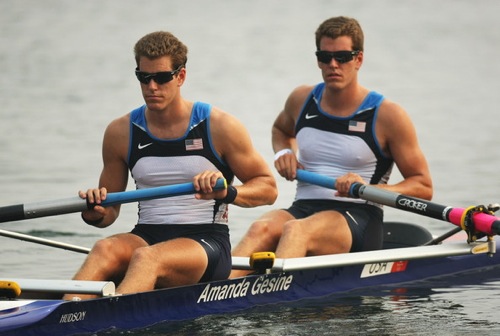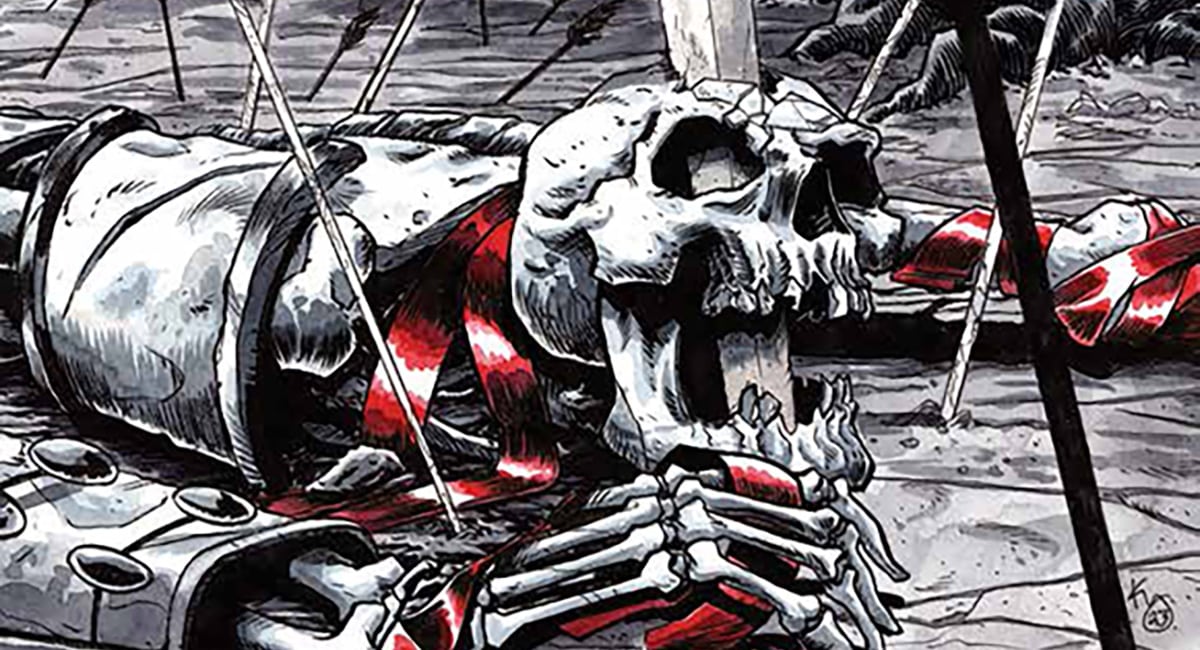By Jeff Trexler
DC’s latest filing in the Siegel case made headlines because of the company’s request for a trial. But was that really a surprise? In today’s post, we’ll look at what the filing reveals about DC’s not-so-secret war — and how the final fate of Superman may be determined by Facebook and the Winklevoss twins.As I explain in my recent podcast interviews with The Superman Homepage, the latest Time Warner brief isn’t a substantial change in legal strategy. Seeking a trial was central to DC’s cross-appeal to the Ninth Circuit from the outset.
The reason: the lower court district court key points were decided via summary judgment, a ruling without a trial. In filing its appeal last year, Time Warner took the position that summary judgment was inappropriate, inasmuch as material facts remain in dispute. DC’s appellate brief is the standard way all parties to an appeal explain their positions to the court, and it had long been scheduled to drop last Friday.
The brief and trial request may not have been a surprise, but they do help to highlight how DC has sought to reframe the case since Hollywood super-attorney Daniel Petrocelli replaced the company’s previous outside counsel. From the brief’s initial argument to its close, DC seeks to redefine the real conflict. This isn’t a mega-corporation versus two deserving heirs–rather, DC is targeting predatory businessmen who use the law as cover for victimizing their clients.
Here DC’s legal team rips a virtual page from the playbook used by Facebook in defending itself against the Winklevoss twins, who claimed that Mark Zuckerberg had stolen their online platform. In the Facebook case, the Winklevoss twins repudiated a summary agreement of terms before a long-form agreement was finalized. The Ninth Circuit, however, ruled that the summary term sheet was enforceable, thereby bringing this lengthy litigation to an end.
Directly citing the Ninth Circuit’s reasoning in the Facebook case, DC begins its brief by asking the court to enforce the settlement term sheet agreed upon by DC and the Siegels before Marc Toberoff and Hollywood agent Ari Emanuel persuaded the heirs to fire their original lawyer. If the one-page term sheet in the Facebook case was enforceable, DC argues, surely the six-page term sheet in the Siegel case was a sufficient expression of the agreed-upon material terms. Time Warner also echoes the language of the court’s ruling — for example, TW’s assertion that “This long-running dispute should be brought to an end” is a direct callback to the conclusion of the Ninth Circuit’s Facebook opinion: “At some point, litigation must come to an end.”
Perhaps most important, though, is DC’s determination to present itself as the white hat in the case. The fact that Time Warner begins its federal appellate brief with a state-law argument for enforcing that term sheet is most deliberate – TW wants to counter the sympathy for the Siegel family that was a more than evident factor in the 2008 decision that gave them half of Action Comics #1. It’s not the big bad corporation vs. the noble impoverished creator and his family – to the contrary, the brief argues, Time Warner had set aside $20 million for Siegel’s widow and daughter, and the company anticipated paying more in keeping with a set of agreed-upon terms that Toberoff deceptively induced them to scuttle for his own personal gain.
Perhaps this argument would not be persuasive at a Comic-Con panel, but in court it’s legal dynamite. The Facebook case is a telling parallel – the Ninth Circuit has already ruled in favor of a major corporation seeking to enforce the terms of a summary agreement with two individuals who rejected it in hopes of getting even more in court. As for a jury, DC is betting that most people, if offered tens of millions of dollars for something that their grandfather wrote almost eighty years ago, would be happy to take the deal. Giving this up to make a wealthy lawyer and a notorious Hollywood dealmaker even more rich will to the average juror seem more incomprehensible than inspiring.
If you continue to doubt the tactic’s potential effectiveness, consider how it changes the alternatives presented in the case. If Siegel’s surviving heir–Laura Siegel Larson–were to win, it would send the case back to the lower court for years of additional litigation as to value and other unresolved issues, with approximately half of that going to Toberoff and his company. If Laura Siegel Larson were to lose the case, she would likely gain a multimillion stake in Superman profits–and implicit in DC’s argument is the possibility that a related case would strip Toberoff’s share, leaving Larson with most of it herself. Like Facebook, DC is trying to argue that a victory for the corporation is efficient and fair–to rule otherwise would just give more money to opportunistic lawyers.
DC’s argument is equally revealing in regard to the perceived threat posed by Toberoff’s victory in the Siegel case. DC’s willingness to concede tens of millions to Siegel Larson shows just how much Time Warner and other IP holders want to take him down. The outlay is worth it if it strikes a fatal blow to the lawyer now perceived as the champion of creators and their heirs–sure, DC pays a few million now, but there’s a good chance that discrediting Toberoff could discourage others from fighting to reclaim their own comics copyright.
What does Toberoff’s appellate brief say about all this? I talk about that–as well as the future of Superman and the role of lawyers in shaping comics continuity–in the podcasts, and in my next post we’ll continue that conversation on The Beat.







wb might be trying to get ahead of Shuster’s estate that will also be heading to court in 2013. wb may be thinking a judgement for them might fend off the other lawsuit heading to court.
wb can paint the white hat all they want it is still black underneath. wb can try to shift it on Toberoff as the reason. Everyone knows wb will not win this in the end.
It sounds to me like the Siegels win either way. They either get 10s of millions or 100s of millions. Most individuals wouldn’t be able to tell the difference.
If Warner “wins”, then what is the status of the copyright? What does the Siegel Estate get, aside from the cash?
In a jury trial, can Warners use lawyer commissions as an argument? Or must the jury decide the case merely on facts?
I really don’t understand this.
The original idea of Superman would be long forgotten if it weren’t for the talented people who nurtured and developed the idea for decades.
At this point the original, creators aren’t really part of what the idea morphed into.
I know I’m probably being insensitive, but at this point the heirs of Superman have as much creative input into the character as I do, and should in my mind have as much legal right to Superman as I do.
Rather than trying to profit off of something they had no hand in the creation of, other than the hand of fate seeing them born into the right place at the right time, why not create their own legacy?
Riiight DC is such noble company it’s not about milking characters for bucks (see Before Watchmen, screwing Moore on Watchmen rights, see Watchmen movie, see Zack Snyder Superman, see New 52) Talented people my @$$. Follow the money Brian. It’s about profits.
I never said DC was noble. Stop being blindly defensive and tell me how this makes sense. Don’t confuse Watchmen with this either (again, if DC let Watchmen go out of print, I doubt you’d know who Alan Moore is).
Without Warner Brothers investing millions into the brand of Superman, he would have faded into obscurity after the 40’s as comics began their initial decline.
Look at Magnus Robot Fighter, the original Captain Marvel (a hero who could shoot his limbs at evil doers), or any of the characters Alex Ross revived for his Dynamite series.
Obscurity, and that’s exactly where Superman would be without the promotion DC afforded the character.
Yes, they built a universe around the character, but the important distinction here is that Siegal and Shuster’s heirs had no risk in the business, and in my mind deserve none of the rewards.
Watch out guys, Chris is a bad ass, he replaces his “s” with “$” to stick it to big corporations
I work for a HUGE corporation. I capitalized that to stck it to Logan. I hope DC & Marvel have to pay royalties to every heir who asks and they go out of business and have the sell the character rights to Mickey D’s to sell burgers and coke.
@Jeff Trexler
What are the chances of their being a Trail by Jury vs. a bench trail?